Driving Safety
Teen Drivers
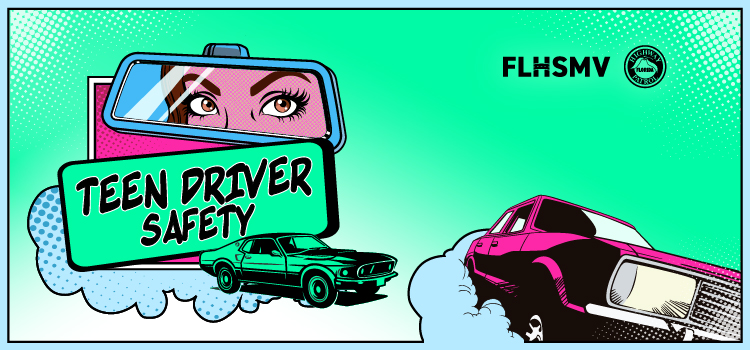
With more than 456,754 licensed teen drivers in the state of Florida, it is so important for teens to practice safe driving. The Florida Department of Highway Safety and Motor Vehicles (FLHSMV) works to educate teens and their parents on the importance of buckling up, observing speed limits, never driving under the influence of drugs or alcohol, and always focusing on driving when behind the wheel.
FLHSMV joins the National Highway Traffic Safety Administration in recognizing National Teen Driver Safety Week in October each year with events throughout the state to remind teens and adults around them how to stay safe behind the wheel. This year, National Teen Driver Safety Week is October 20 – October 26, 2024.
FLHSMV’s Teen Driver Safety campaign gives teens the tools and language to take ownership of their driving habits, from obeying speed limits and buckling up to focusing on driving.
Driving is a Privilege – Don’t Lose It
- Parents can rescind a minor’s driver license.
- The parent or guardian who signs the Parental Consent Form can rescind responsibility for their minor’s driving and cancel the minor’s license. (section 322.10, Florida Statutes)
- If teens get six or more points on their license within 12 months, their license is restricted to “Business Purposes Only” for one year.
- If teens receive six points on their driving record within a 12 month period, driving privileges are automatically restricted to Business Purposes Only for 12 months or until age 18, whichever happens first. If additional points are received during this restricted period, the restriction is extended 90 days for each additional point. (section 322.161, Florida Statutes)
- If under 21, it’s ZERO TOLERANCE for drinking and driving.
- Drivers under the age of 21 with a blood alcohol level of .02 percent or more will have their license immediately suspended for six months. A second offense will result in a one year suspension. Refusal to submit to testing (first offense) results in a suspension of 12 months, 18 months on a second offense. (section 322.2616, Florida Statutes)
- If a teen receives a moving violation conviction with a Learner’s License, they have one more year until they can get an Operator’s License.
- If a teen receives a moving traffic conviction with a Learner’s License, the one-year period required to hold the Learner’s License will be extended for one year from the date of the conviction, or until 18 years old, whichever happens first. (section 322.161, Florida Statutes)
- Teens must be in compliance with school attendance, or they will be ineligible to obtain or maintain their license.
- If not in compliance with school attendance, a teen’s driving privilege can be suspended until proof of attendance in school for 30 consecutive days has been provided. (section 322.091, Florida Statutes)
- If convicted of possession of tobacco, minors lose their license for a minimum of 30 days.
- If convicted for possession of tobacco or nicotine products under the age of 18, the minor’s license will be suspended for 30 days or more. (section 322.056, Florida Statutes)
Graduated Driver Licensing (GDL) laws in Florida allow young drivers to safely gain experience under lower-risk conditions before obtaining full driving privileges. In 1996, Florida became the first state to enact GDL laws and since then every state has adopted the GDL program in some capacity.
There are driving curfews for minors with learner’s and driver licenses:
| License Type | Hours | Note: |
|---|---|---|
| Learner's License | Daylight hours for first three months after license issued - until 10 p.m. after three months |
|
| Driver License 16 years old | Driving is only allowed between 6 a.m. and 11 p.m. | Unless driving to or from work OR accompanied by a licensed driver 21+ |
| Driver License 17 years old | Driving is only allowed between 5 a.m. and 1 a.m | Unless driving to or from work OR accompanied by a licensed driver 21+ |
Visit our Licensing Requirements for Teens, Graduated Driver License Laws and Driving Curfews page for more information.
Teen Driver Safety Tips
Before you drive:
- Always buckle up and make sure all your passengers buckle up, too.
- Keep passengers at a minimum. Extra passengers can be distracting for an inexperienced teen driver. Never try to fit more people in the car than you have seat belts for them to use.
- Maintain your car’s optimum performance. Check your tires and make sure they are inflated to the right pressure according to your owner’s manual. Bald tires, a slipping transmission, bad brakes, a dirty windshield or a hesitant engine could lead to accidents.
- Make sure your car has gas in it. Don’t drive around with the gauge on empty and risk getting stranded somewhere unsafe.
- Get directions before you leave. When driving to a new place, get complete directions and set your GPS before you go. Figure out exactly where you are going before you put the car in drive.
- Be responsible, never drive impaired, and never ride with anyone who is under the influence of drugs or alcohol. Call parents. friends, or a ride share service to take you home if you need a ride.
- Don’t drive drowsy. Drowsy driving can be just as dangerous as drunk driving. Take regular breaks on long drives. If possible, use the “buddy system” so you can change drivers when needed. If you feel sleepy find a safe place to stop and take a nap. The Florida Department of Transportation maintains multiple rest areas, service plazas, truck comfort stations and welcome centers throughout Florida. These are great places to stop and take a break. For more information, visit fdot.gov/maintenance/restareas.
- Obey the speed limit. Excess speed is one of the main causes of teenage crashes. Stop speeding before it stops you. Obey all speed limits, stops signs, and traffic lights. Going too fast gives you less time to stop or react.
- Use your turn signals to indicate your intention to turn or to change lanes and to give the drivers behind you enough time to react before you take the action. Make sure the signal turns off after you’ve completed the action.
- Don’t blast your music. You might miss hearing a siren or a horn that could warn you of possible trouble.
- Don’t drive distracted. Keep your eyes on the road, hands on the wheel and mind on driving. Don’t adjust the radio or any device, talk or text on your cell phone, put on make-up, comb your hair or eat while driving. Wait until you can pull over safely. Taking your focus off the road for even a few seconds could lead to a crash.
- Share the road with others – watch out for motorcycles, bikes and pedestrians.
- Don’t leave your car in cruise control when you’re driving late at night or when you’re tired. If you fall asleep at the wheel, the car will crash at the speed you’ve set your cruise control to maintain.
- Stay alert! Be aware of the weather, traffic congestion and road conditions.
Teen Driver Safety Campaign Resources
Social Media Kit
1080×1080
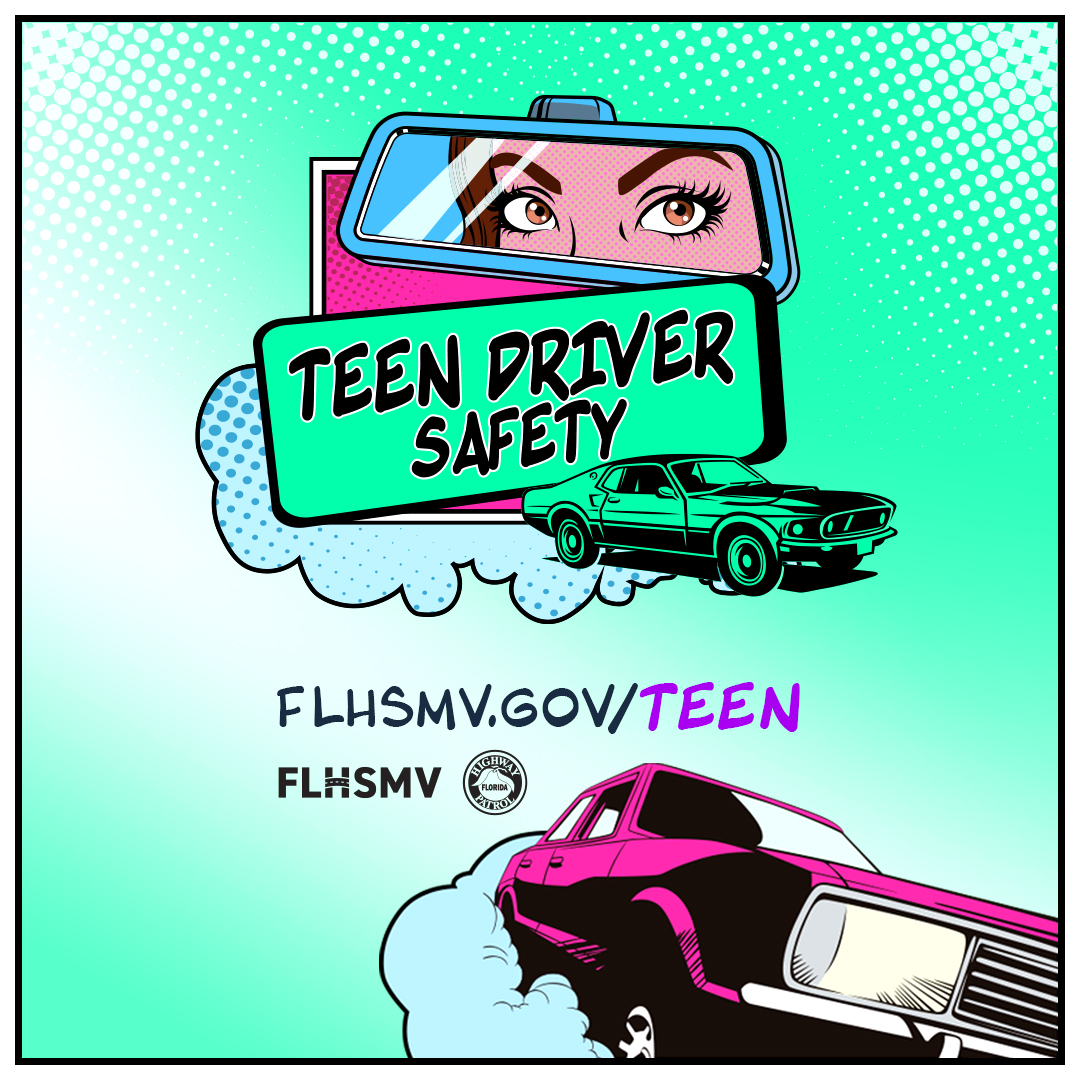
1080×1920
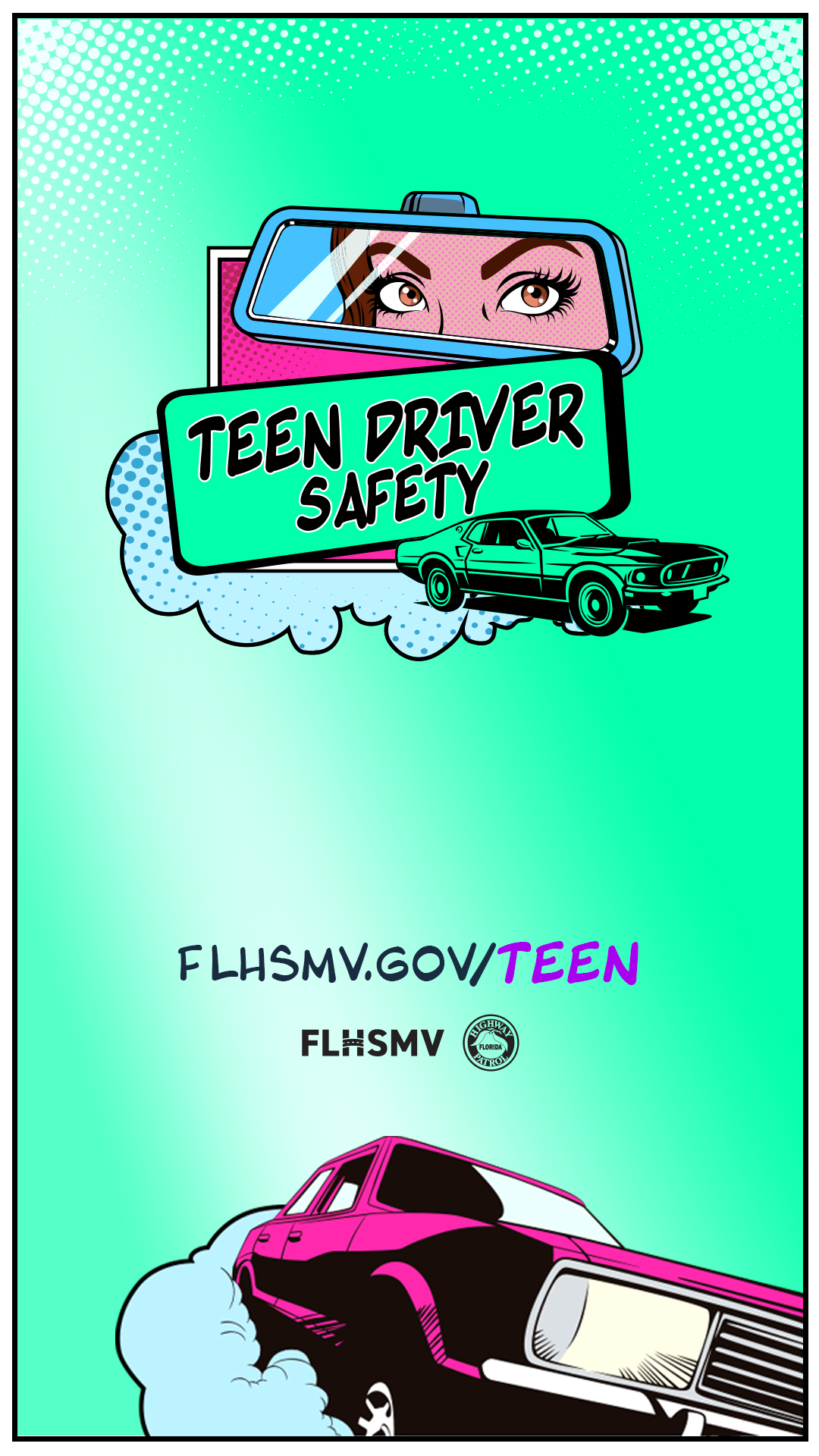
1200×630
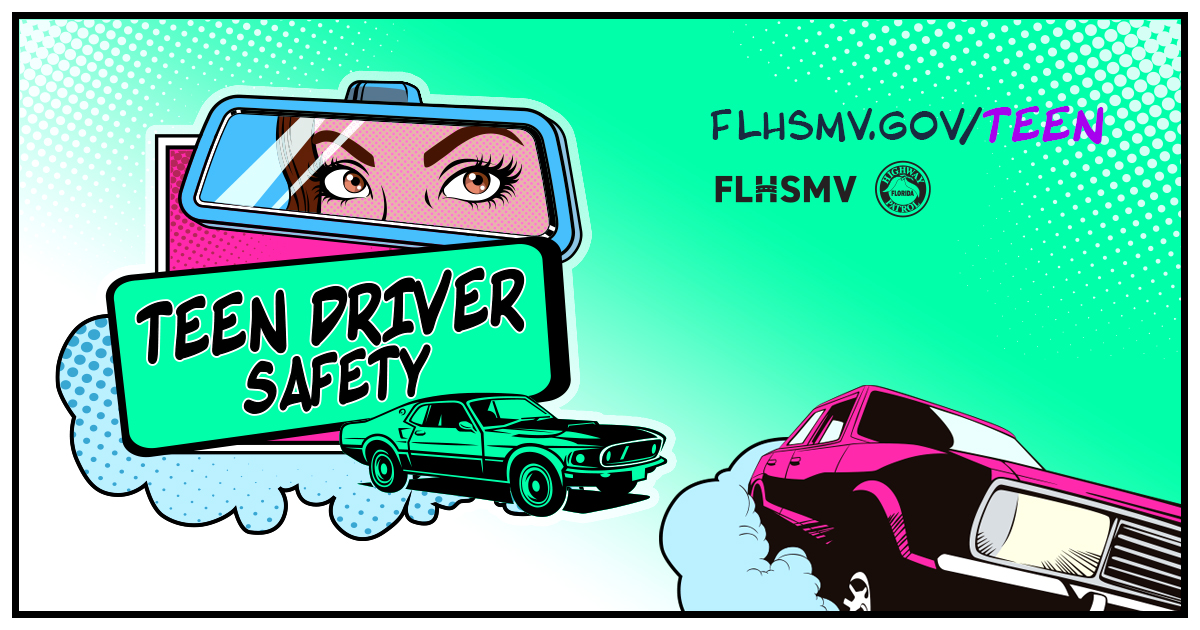
Print Media Kit
8.5×11
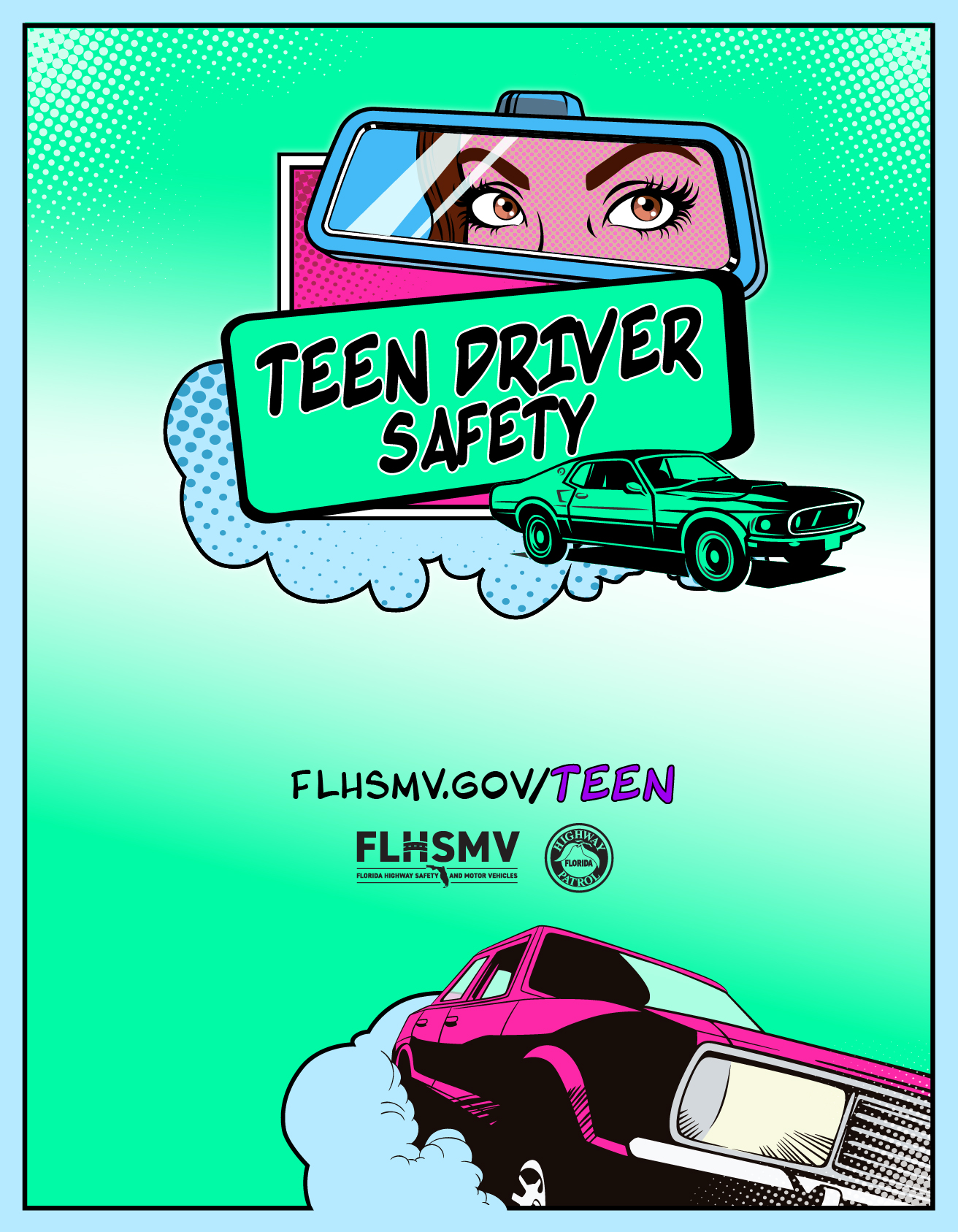
11×17
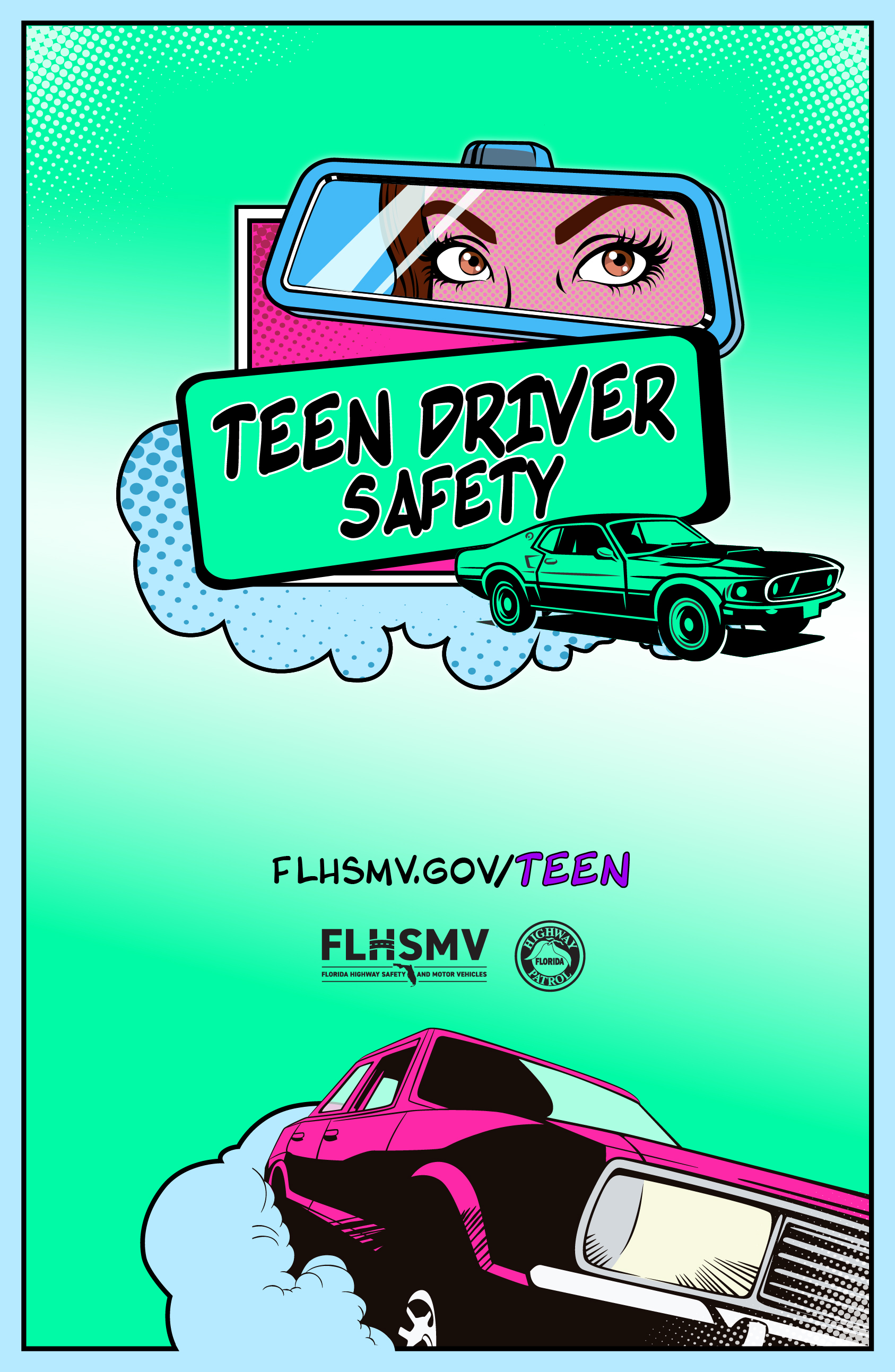

Dave Kerner, Executive Director